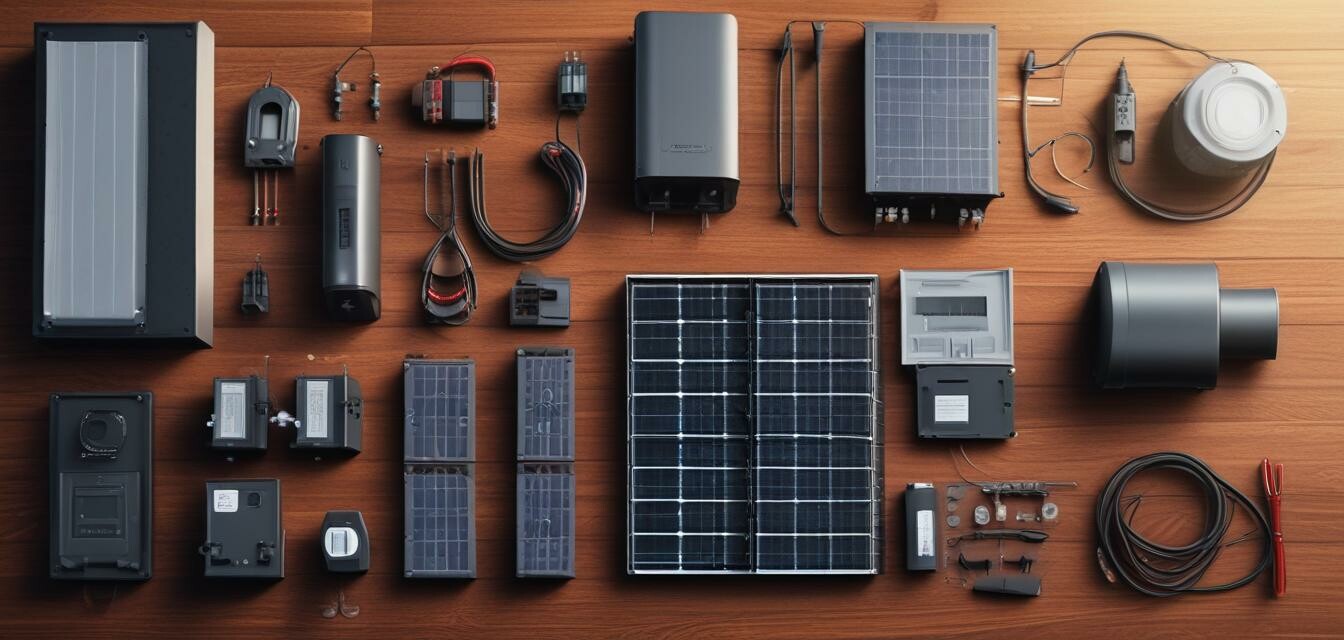
Build Your Own Solar Generator: Step-by-Step Guide
Key Takeaways
- This guide covers the essential components needed to build a solar generator.
- Understanding the connection between solar panels, batteries, and inverters is crucial.
- Always prioritize safety tips when working with electrical components.
- DIY solar generators can significantly enhance your energy independence.
Creating your own solar generator is a rewarding DIY project that enhances your grid independence and can provide reliable power for your outdoor activities. In this guide, we'll walk you through the necessary components, safety tips, and the step-by-step process of building your very own solar generator.
What is a Solar Generator?
A solar generator is a portable power station that harnesses sunlight to generate electricity through solar panels. This electricity is then stored in batteries for later use. Ideal for camping, emergencies, or everyday use, a solar generator provides a sustainable and renewable energy source.
Essential Components of a Solar Generator
| Component | Description |
|---|---|
| Solar Panels | Capture sunlight and convert it into electricity. |
| Battery Storage | Stores electricity generated from solar panels for later use. |
| Charge Controller | Regulates the voltage and current coming from the solar panels to charge the batteries efficiently. |
| Inverter | Converts the stored DC electricity from the batteries into AC electricity for use with household appliances. |
| Wiring and Connectors | Essential for connecting components safely and effectively. |
Why Build Your Own Solar Generator?
Building your own solar generator allows you to:
- Customize your power needs based on your lifestyle
- Save money compared to purchasing ready-made units
- Gain valuable skills and knowledge about renewable energy systems
Step-by-Step Guide to Building Your Solar Generator
Step 1: Gather Your Materials
Ensure you have all essential components before starting:
- Solar panels
- Battery storage
- Charge controller
- Inverter
- Wiring and connectors
Step 2: Assemble the Solar Panel
Follow these guidelines:
- Position the solar panel in a location with maximum sun exposure.
- Secure the panel using brackets, ensuring it's stable.
- Connect the panel to the charge controller using wiring.
Step 3: Connect the Charge Controller to the Battery
Next, link the charge controller to your battery storage:
- Follow the manufacturer's guidelines on connecting the charge controller properly.
- Ensure all connections are tight to avoid disconnections during use.
Step 4: Install the Inverter
Set up the inverter to use the stored power:
- Connect the inverter to the battery storage.
- Ensure it is positioned safely, away from moisture and direct sunlight.
- Test the connections before plugging in appliances.
Safety Tips
- Always wear safety goggles and gloves while handling electrical components.
- Double-check all connections before using the solar generator.
- Be cautious of the voltage levels in your system—do not exceed recommended levels.
- Store batteries in a cool, dry area to prevent overheating.
Troubleshooting Common Issues
| Issue | Possible Cause | Solution |
|---|---|---|
| No Power Output | Discharged battery | Charge the battery via solar panels or alternate source. |
| Poor Charging Efficiency | Obstructed solar panels | Clean panels and remove any objects blocking sunlight. |
| Inverter Not Working | Faulty inverter | Check connections and consult manufacturer for repairs. |
| Battery Overheating | Inadequate ventilation | Ensure proper airflow around battery storage. |
Tips for Beginners
- Start with smaller solar generators to familiarize yourself with the components.
- Join online forums or local groups focused on renewable energy for support.
- Research different battery types to find the best one suited for your needs.
Pros
- Enhances energy independence
- Cost-effective compared to commercial options
- Hands-on learning experience
Cons
- Initial setup can be complex
- Requires basic knowledge of electrical systems
- Maintenance is necessary to ensure efficiency
Learn More and Explore Further
For more information to enhance your solar energy journey, check out our guides on battery storage, charge controllers, and news and trends in the world of renewable energy.



